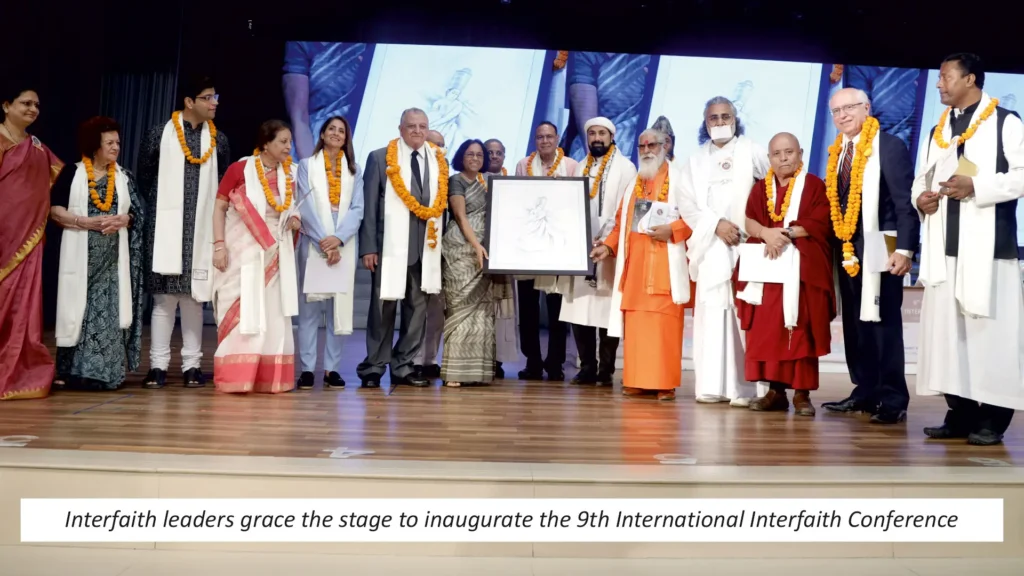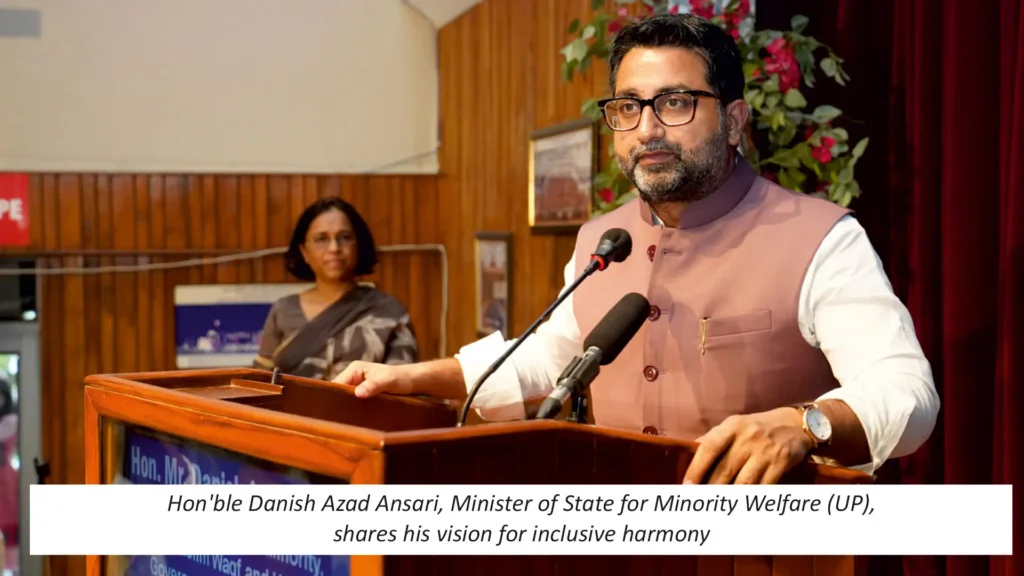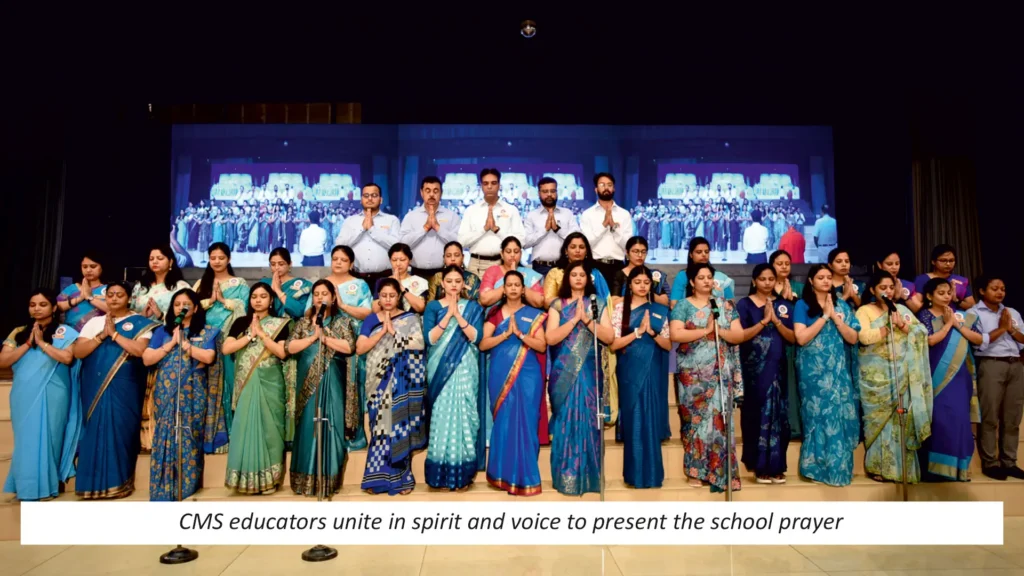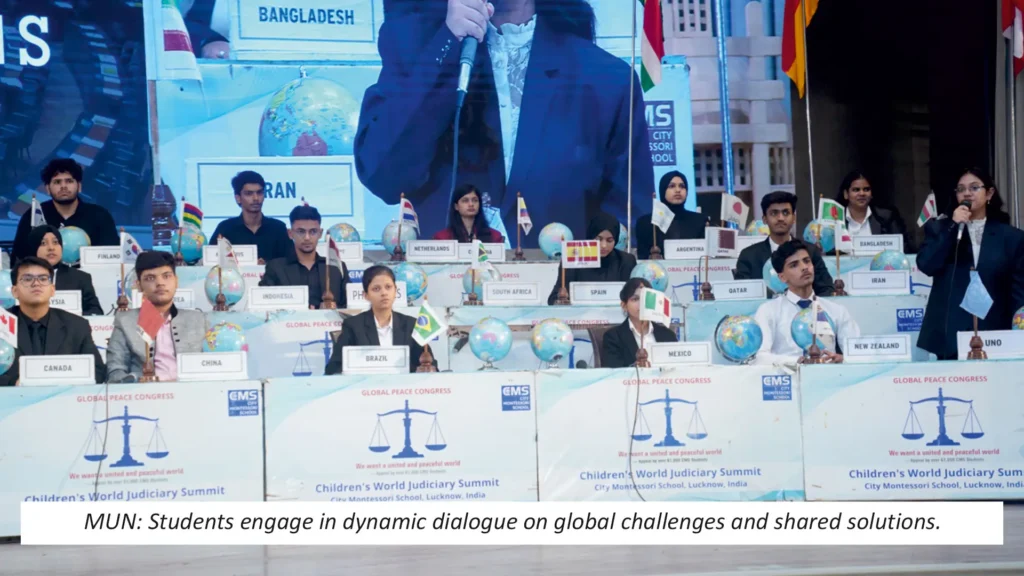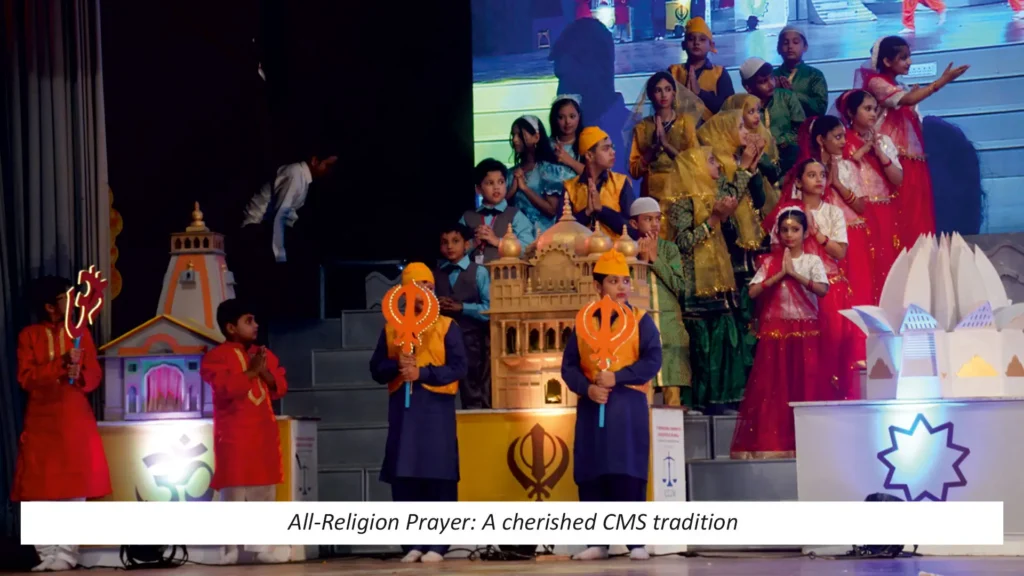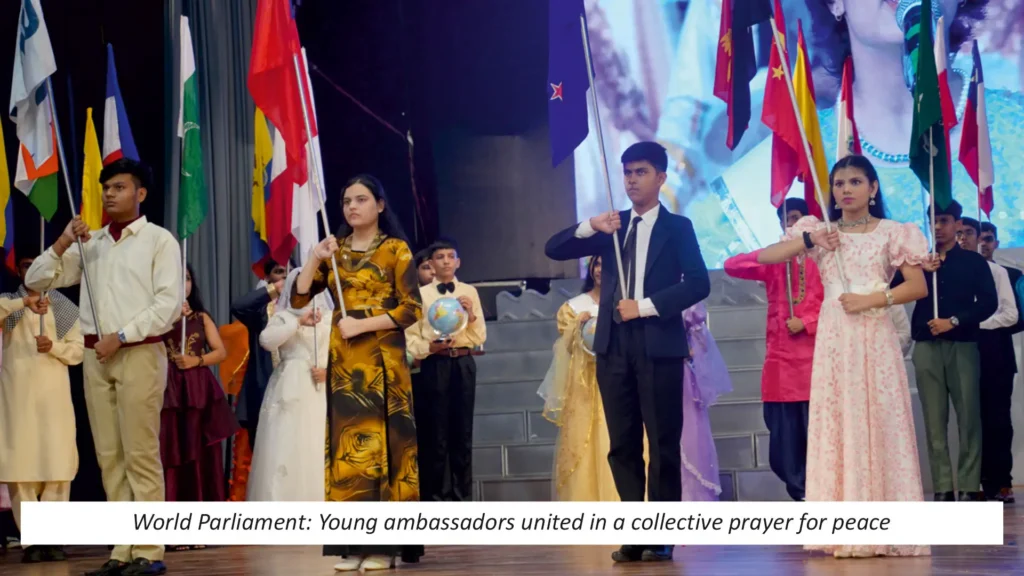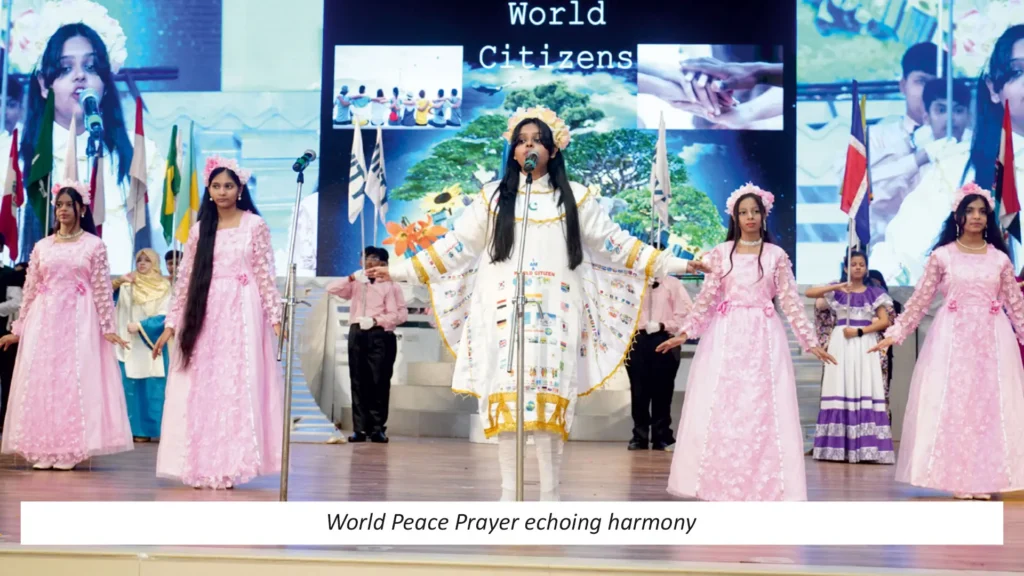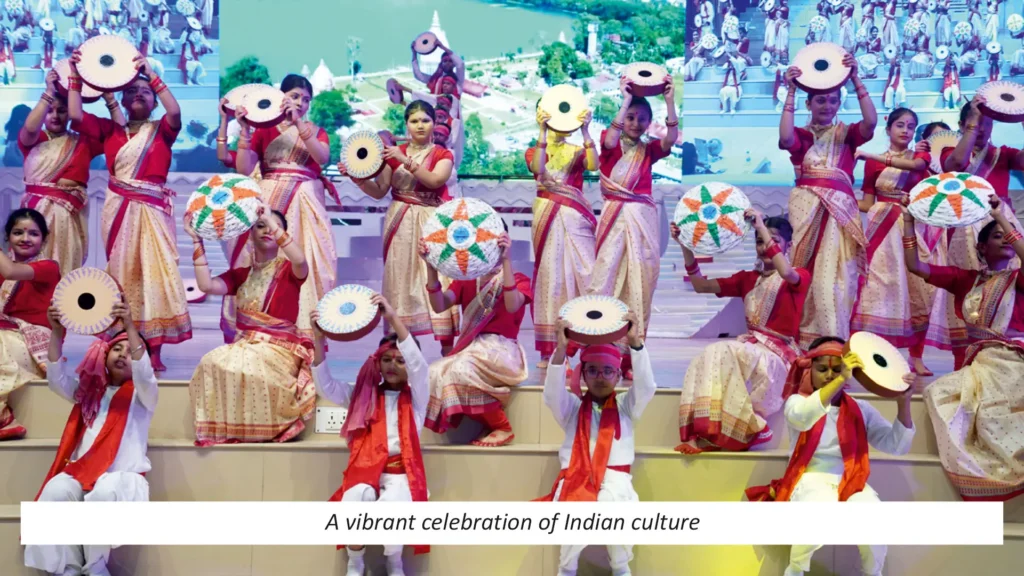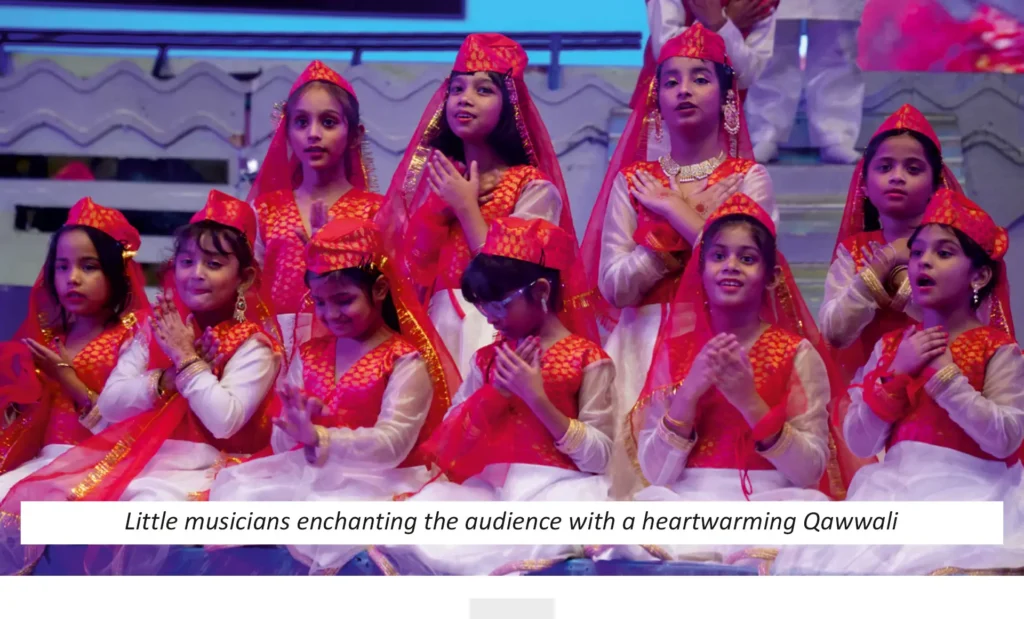Event Concept
Together in Faith to Shape a Better World
A Call for Unity, Equality, and Environmental Stewardship in a Fractured World
In 2019, 43 countries experienced “high” or “very high” levels of social and religious tension, ranging from interpersonal strains to broader community challenges, according to the Pew Research Centre—a figure that highlights the urgent need to foster peace and understanding in inclusive societies.
Religious conflicts have tragically shaped history. From the 14th-century Black Death in Europe, where religious scapegoating during the plague contributed to widespread loss of life, to the present, conflicts continue to affect millions globally. In today’s world of profound spiritual diversity, fostering connection not division, is essential.
“Peace is no longer a distant ideal; it is a pressing necessity.”
At City Montessori School (CMS), we believe that true education must nurture the values of peace and unity. Guided by the motto Jai Jagat (“Glory be to the World”), CMS has always encouraged interfaith dialogue by bringing together leaders from diverse religious traditions to engage in thoughtful conversation and purposeful collaboration. This spirit of global harmony was poignantly reflected when CMS alumnus Group Captain Shubhanshu Shukla, mission pilot aboard the historic Axiom‑4 spaceflight, shared a message from the cosmos—
“I do not see borders.”
His words reflect more than a view from space. They capture the worldview CMS seeks to instil in every learner that we are members of one human family, united beyond boundaries of faith or nationality.
It is this very ethos of unity and shared purpose that underpins the 10th International Interfaith Conference, themed “Together in Faith to Shape a Better World.” This landmark event brings together religious and thought leaders, international, national, and local, before an audience of students, educators, and community stakeholders, reflecting a shared vision in action.
Centred around three key themes, Unity (UN SDG 16), Gender Equality (UN SDG 5), and Climate Action (UN SDG 13), the conference seeks to redefine religion as a force for collaboration, justice, and shared responsibility.
Key Areas of Discussion at the Conference
- Faith as a unifying force in a fragmented world
- Religion as a force for promoting unity, gender equality & climate action
- Woman leadership as a catalyst for transformative change within faith communities
- Expanding roles of religious institutions in education, social care, humanitarian aid, and SDG-aligned governance
- Empowering youth to foster interfaith dialogue, overcome prejudice, and advocate for peace
The challenges we face, environmental, social, and ethical, are shared concerns that transcend borders. When guided by compassion and collective wisdom, faith traditions can become instruments of healing and hope. This conference does not seek uniformity in belief, but unity in purpose, rooted in mutual respect, dignity, and care for our shared planet.
Let us come together in faith, not only to envision a better world, but to nurture it with open hearts, listening minds, and joined hands.
